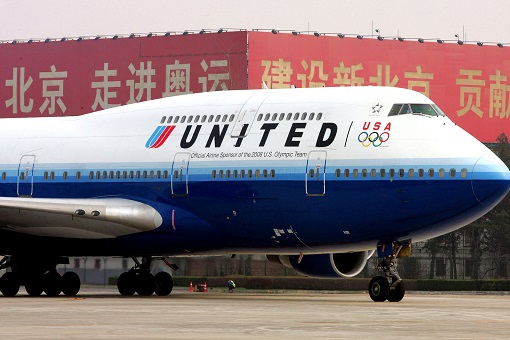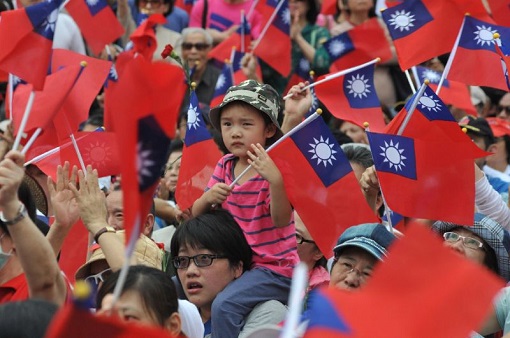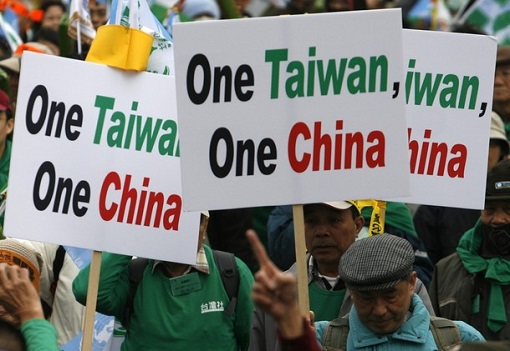As China plays “tai-chi” with the United States in trade war, the Chinese is leveraging its huge marketplace to get what it wants from foreign companies. While the Middle Kingdom has the largest foreign reserves in the world, there’s something which they still couldn’t buy – “One-Chine” recognition. Hence, the fight has gone to the desk of President Trump.
Over the weekend, the airlines industry was hit with letters of demand from the Civil Aviation Administration of China (CAAC). Up to 36 foreign air carriers – including U.S. carriers – were reportedly served with the demand, ordering them to stop publishing or referring Taiwan, Hong Kong and Macau as different countries but instead mark them as part of China on their website.
The letter dated April 25 gave all the affected airline carriers 30 days to comply, without which actions may be taken by the CAAC. The carriers were told to remove references on their websites or in other material that suggests Taiwan, Hong Kong and Macau appear to be countries independent from China. One of the affected U.S. carriers has complained to the U.S. president.

Frustrated, United Airlines, which still lists Taiwan separately on its websites has passed the letter to the White House for advice. The White House wasn’t amused with Beijing’s method of trying to control the way foreign airlines refer to Taiwan, Hong Kong and Macau. Calling it “Orwellian nonsense”, the Trump administration criticised the Chinese government.
The White House said that President Donald Trump “will stand up for Americans resisting efforts by the Chinese Communist Party to impose Chinese political correctness on American companies and citizens.” It said – ” This is Orwellian nonsense … We call on China to stop threatening and coercing American carriers and citizens.”
Orwellian refers to a situation, idea, or societal condition that George Orwell (Eric Arthur Blair) – an English novelist, essayist, journalist, and critic – identified as being destructive to the welfare of a free and open society, due to an attitude and a brutal policy of draconian control by propaganda, surveillance, misinformation, denial of truth and manipulation of the past.

Taiwan, obviously, is the most sensitive territorial issue to China. It is so sensitive that if the U.S. needs a war with China, this is where they can start it. Beijing considers the self-ruled, democratic island a rebellious province. Hong Kong and Macau are former European colonies – British and Portuguese – that are now part of China but run largely autonomously.
China, the world’s second largest economy, of course, didn’t take well Washington’s criticism. The next day after being called the “Orwellian nonsense”, China’s foreign ministry, saying that overseas companies operating in China should respect its sovereignty and territorial integrity, follow Chinese law and “respect the national feelings of the Chinese people”.
As both countries are engaged in trade talks, the issue of “One China” could deliberately thrown in by Beijing as retaliation to Trump’s playing up the Taiwan Issue, or as a negotiation chip. According to sources, the Trump administration demanded an eye-popping US$200 billion cut in China’s trade surplus with the U.S. by 2020, sharply lower tariffs and a halt to subsidies for advanced technology.

But what can China do if foreign airlines, especially those from the U.S., refuse to play ball and simply ignore the demand to recognise the “One China” policy? They would risk losing lucrative business if Beijing decides to disallow them from operating in mainland China. Therefore, the trade war could get worse and involve the aviation industry.
Besides U.S. airlines, Japan Airlines also appears to be in defiant – offering area options under the heading “China / Hong Kong / Taiwan”. However, this is not the first time China’s CAAC police how foreign carriers refer to its territories, especially Taiwan. In January, Delta Air Lines, a U.S.-based carrier, was criticised for listing Tibet and Taiwan as separate “countries”.
Civil Aviation Administration of China demanded an “immediate and public” apology, to which Delta obediently complied, clarifying that there was no political intention behind the listing. It has since removed Tibet from its website, but Taiwan is still listed separately from the mainland. Still, analysts are surprised that the White House intervenes in such issue.

Usually, it would be left to the State Department. With the White House showing great interest in the matter, speculations were raised that Trump’s new National Security Adviser – John Bolton – could be the person behind it. A staunch supporter of Taiwan, Bolton may want to start a new crisis with China, hence provoking the Chinese with condemnation.
Other Articles That May Interest You …
- Missiles Installed In Spratly – Upset U.S. Threatens China With “Consequences”
- U.S. Airlines Complain To Trump – Stop The “Cheating” Middle East Airlines
- Travellers To Pay More – US Immigration Officers To Be Stationed At UK Airports
- “Now Everyone Can Pray” – The Scariest 90-Minute Ride AirAsia Could Offer
- Top-5 Simple Secrets That Make Singapore Changi The World’s Best Airport
- A Bully & Racist Airline – A Chinese Man Bloodied & Dragged Off Flight
- Secrets Revealed – TIPS To Get A Free First Class Flight Upgrade
- Here’re 20 Dirty Secrets The Airlines Don’t Want You To Know
- Top-15 Best & Luxurious First Class Amenity Kits From Airlines Around The World
- Secret Revealed – The Secret Chambers Where Pilot & Cabin Crew Rest & Sleep (Photos)

|
|
May 8th, 2018 by financetwitter
|


|

|

|

|

|

|




























Comments
Add your comment now.
Leave a Reply